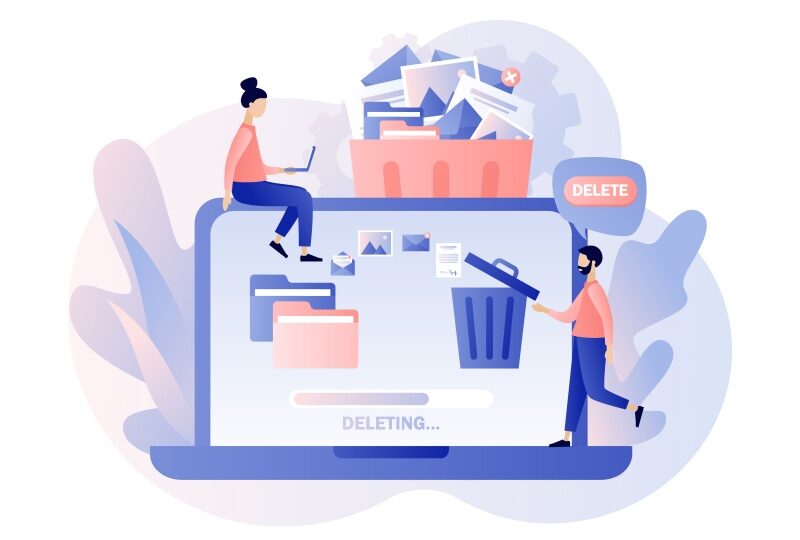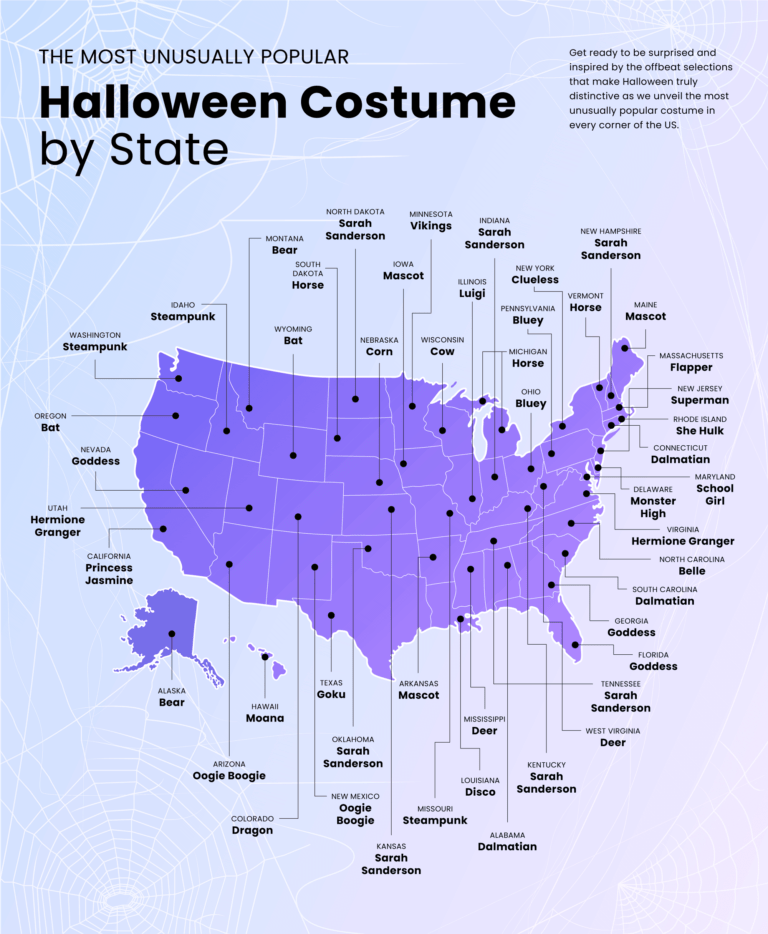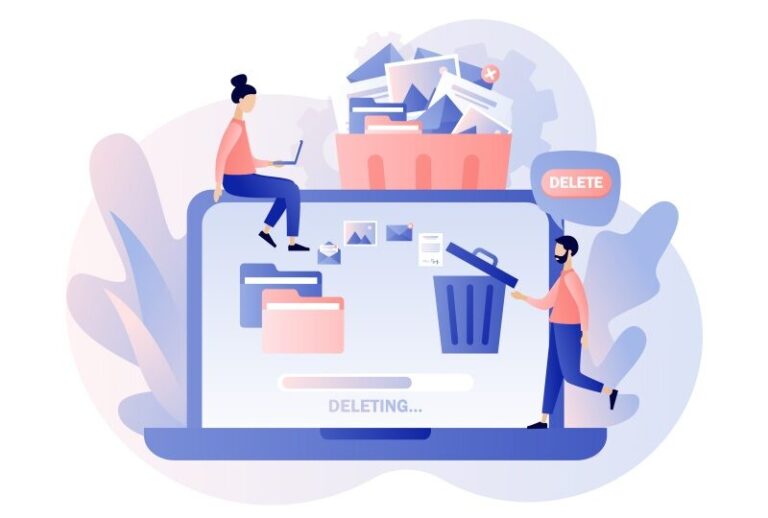Table of contents

If you’ve ever performed a Google search, opened up an email account, or bought something online, your personal information is available for anyone to see. If you’re concerned about the security of your data, you’ve probably asked yourself: “Can you delete your online presence?”
Performing a Google search of your own name will have you surprised at just how many results pop up!
Due to the sensitive nature of data and the implications of having certain pieces of information available to everyone in the world to see, protecting your data is a very serious matter.
Unfortunately, this is difficult (and most likely impossible). However, there are a number of steps you can take to delete your data from the web or making it far more difficult to find.
Let’s go through them together.
Delete your Social Media presence
Social media sites such as Facebook, Twitter, TikTok, Pinterest and Instagram are the most popular sites on the internet and have the biggest impact on your online presence. They also hold the most personal data about us and can be the trickiest to manage when it comes to privacy.
Luckily, social media account deletion is pretty simple. You just need to log into every social media account you use and search for each site’s instructions on how to request an account removal. Each site has a different process, but they are all relatively easy and should delete your account within 30 days or so.
Tips to delete your social media presence:
- Backup your data first. Your social media accounts likely hold precious photos or messages you want to keep. Download images, export contacts or screenshot conversations you want to keep and save them somewhere else.
- Read the fine print carefully. Some sites distinguish between deactivating and deleting accounts. If only deactivated, your account info will still be saved in the case you want to return. You must fully delete your accounts if you want to wipe any information available on those sites.
- Check up after deletion requests. Pay attention to how long it will take for accounts to be deleted and follow up on it. Make sure to take any extra measures the site recommends in addition to an account deletion request.
*Note: If you’re not ready to commit to fully deleting your accounts, make them private in the meantime. Privacy controls can be tricky, however, so make sure you read each site’s instructions carefully. If you can’t delete your online presence entirely, you can at least protect them as much as possible from public viewing.
Remove Yourself from Data Collection Sites
Data collection sites, also known as people-finder sites or data brokers, are in the business of storing massive amounts of data on you so they can then sell it to interested parties.
What’s even more problematic is that data collection sites such as Whitepapers and Been Verified don’t just sell your data directly online. They sell this information to large organisations.
You can manually remove yourself from these sites one at a time, but it’s a seemingly never-ending task that can sometimes involve jumping through hoops and even sending paperwork over to these companies.
If you aren’t interested in the hassle, there are online services such as Private Duck or Delete Me that can do the work for you at a cost. These services are best used with an ongoing subscription because deleting your information from data collection sites is just temporary. The above services will usually check back every few months to make sure your data hasn’t been aggregated to the sites again.
Tips when removing yourself from data collection sites:
- Decide if you want to be searchable. Removing yourself from these data collection sites means you’ll likely remove a lot of your information from Google search results. This will make it much harder for people to find you.
- Opt-out from as many as you can. There are a ton of data broker sites, so opting out of personal information collection on as many as possible will ensure the best results. Minc has created a master list of data broker site opt-out links that makes this task a lot easier.
Delete Shopping Accounts and Other Online Services
Every single website that you have made a purchase on (eg. Amazon, eBay, clothing retailers) or registered to in exchange for access (eg. online news sites) keeps some type of record of you and your data.
The most annoying thing about this is that these shopping sites keep track of your purchases and what you view online and use it to retarget you with third-party advertisements.
To delete these accounts just go to your account settings and find the option to remove or close your account. Each site has its own protocol for deletion and some may ask for identification verification.
Tips when removing yourself from online services and shopping accounts:
- Make a list. If you’re very active online, it will be difficult for you to remember all the sites you’re registered on. Take some time to jot down a list of all the sites you can think of that require you to create a username and password. You may not remember all of them, but you will have a good reference point to start from.
- Contact customer service. Many online retailers don’t make it so easy to request account deletion. Oftentimes links to request this aren’t even included on their site. If you can’t find one, contact customer service.
- Use false data. If you’re finding that deletion is impossible, or don’t have the time to go through an arduous process, you can change your personal information to something false for the time being.
- Read the T&C. If you are deleting any paid accounts be sure to read through each site’s Terms and Conditions to understand what happens if you’ve already paid up-front for a service. You’ll also want to find out what happens to your payment information after account deletion.
Delete Forum Posts Comments, Discussions, and Third Party Website Content
Even without a social media presence you’re more than likely to have left a digital trail of comments, debates, photos and discussions in various online forums or websites. Depending on content, some of these trails may leave you wish a tarnished online presence.
These posts will be the most difficult to delete and will require a lot of manual work.
If the forums where you posted made you open an account, there’s a good chance you can login to that account, navigate to the forums where you left comments, and delete them.
This will be difficult as it involves remembering every single forum/thread you’ve interacted with.
In cases where you cannot login to an account, you will have to reach out to the website owner, site manager or moderator with a link to the post and request that your content be deleted.
Tips when requesting content be deleted from a third party site:
- Be polite. Site owners or moderators are not obligated to remove any information, comment or post. The best way to get them to do so is in a professional way.
- Be specific. Make sure to give an authentic, sincere reason for removal. Provide the site owner with the specifics of what you want removed and point them in the right direction with a URL.
- Do your research. Depending on the country or jurisdiction, site owners may be legally be obligated to delete content upon request.
- Follow up. Just because a webmaster hasn’t responded to your request or deleted your content right away doesn’t mean they won’t do it. They may have just forgotten.
Unsubscribe from Email Lists
This one’s pretty straight forward.
All websites let you manually unsubscribe from newsletters. To unsubscribe to as many as you can, login to your email account and go through each email coming from a company. Scroll to the bottom and click the “Unsubscribe” button and follow the instructions.
There are also some services, such as Unroll.me, Clean Email or Cleanfox that goes through your email and identifies all of the email newsletters and mailing lists you’re subscribed to. You can then go through and bulk unsubscribe from them automatically.
Delete Email Accounts
Email accounts are basically a necessity nowadays as they can be required for many legal purposes.
However, you should consider deleting old email addresses that you don’t use anymore and those that you used to sign up with online accounts.
The process of deleting your email account varies depending on your email provider. Do a quick Google search to understand the procedure for each one.
Delete your Name from Google Search for Any Leftover Information
Now that you’ve done most of the heavy lifting, it’s time to clean up what’s leftover and permanently delete your name from Google.
Run a Google search on your name inside quotes (eg. “Sarah Brown”) and see what information is still available for viewing.
Repeat the same process with your email address, phone number, home address or any other personal information you may have out there.
You can also search using people search engines such as TruthFinder, PeopleFinders and Instant Checkmate. These service are incredible efficient at pulling up hard-to-find data on people, but come with a cost.
Remove Your Outdated Search Results
Even after you delete social media accounts remove your information from websites you can still appear in search engine results.
Why?
This is because the search engine is pulling up a “cached” version of the page that is displaying your information. A cache acts as a reserved storage location that collects temporary data to help websites, browsers, and apps load faster. This makes it easy to quickly retrieve data, which in turn helps devices run quicker.
Cached pages are usually cleared out within a couple weeks, but if it’s not, you’ll need a tool to get it removed.
For Google, use the “Remove outdated content” page for instructions. For Bing you can use the Bing Content Removal Tool.
*Note: Sometimes these pages cannot be removed from cache due to legal or technical reasons.
Check the Wayback Machine
In 2001 archivists created a tool in an attempt to archive the web. The Wayback Machine archives website content, making it available for anybody to see, and now contains over 25 petabytes of data!
If any of your personal information was made publicly available on a web page, it’s likely that the Wayback Machine has the page archived and stored.
To check if your information is still available search the Internet Archive at https://archive.org/advancedsearch.php. If you find data you want removed contact the team at info@archive.org and make a request. (Note: You’ll likely have to identify your identity).
In Conclusion: Can you delete your online presence?
Deleting your online presence can be a lot of work and in reality, it’s almost impossible to delete every single trace of your identity or presence on the internet.
However, if you’ve got the patience and perform all of the recommended steps, you’re sure to remove a large majority of your visible information from the web.
Keep in mind that a complete lack of public online information can work against you. As mentioned in our last blog, recruiters and Human Resource executives often perform Google searches to vet candidates for a job. It’s worth evaluating if complete removal of your online footprint is necessary, or just a clean-up.
Are you ready to remove, or tidy-up your online presence but don’t have the time? Give us a shout and one of our online visibility experts will get in touch with a free analysis of your online presence.





